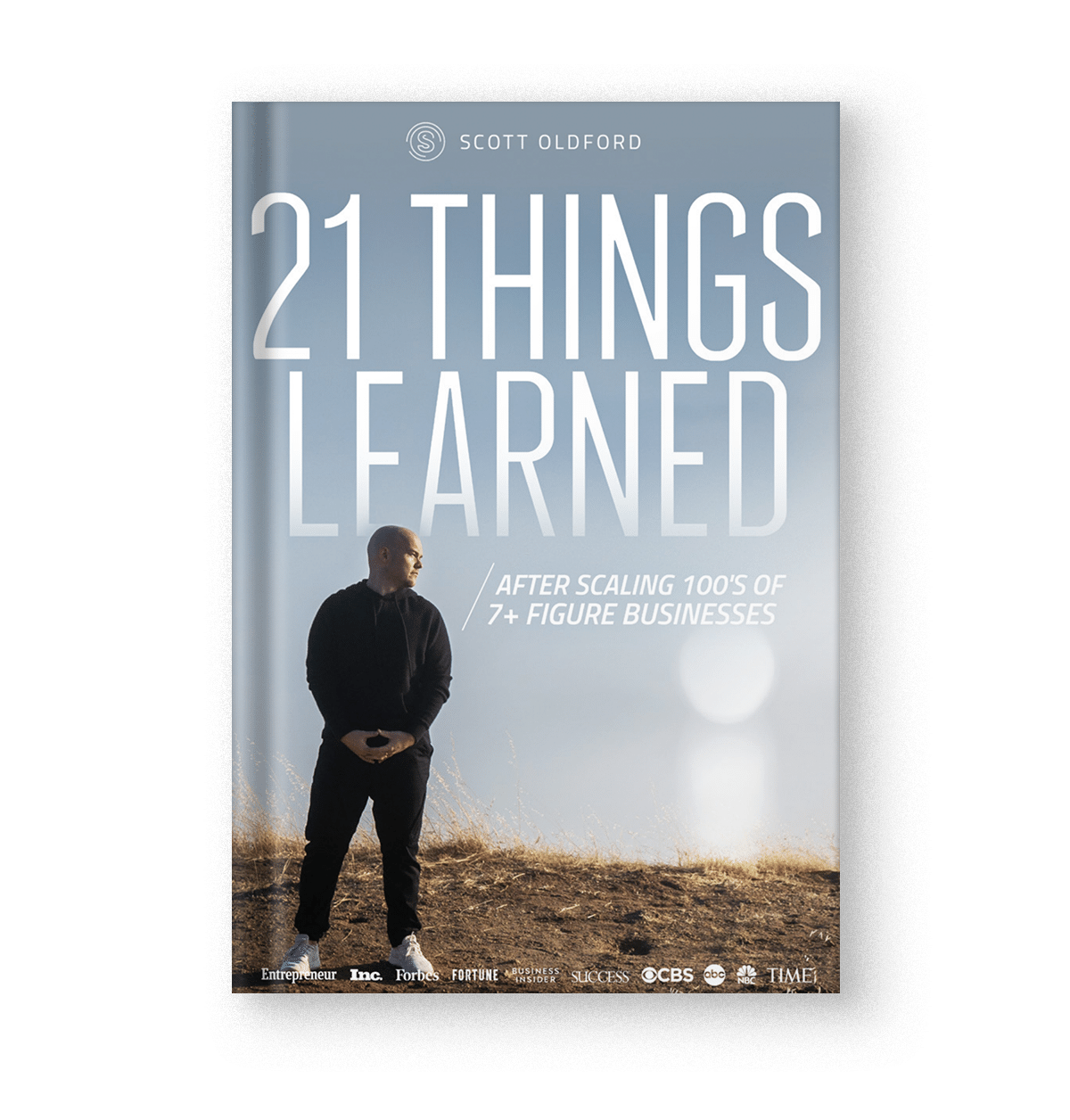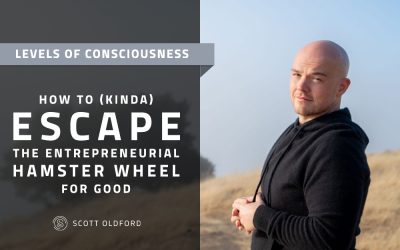Prefer to listen instead of watch? Check out the podcast player below…
[smart_track_player url=”https://soundcloud.com/scott-oldford-show/how-to-overcome-entrepreneur-depression-ep018″ ]
To view this video on Youtube, click here (remember to Like + Comment 
To access future videos before everyone else, SUBSCRIBE to the Youtube Channel now
———————————-
There’s a dark side to entrepreneurship, and it often begins on a platform like Instagram.
Social media allows you to share your story with the world. All day, every day, you can share the good, the bad and the ugly with all those you know (and who follow you). This is great. Transparency like this helps you connect with other people and build trust.
The problem is… this isn’t what you do.
You only share the good moments. When you have a successful and profitable day, you share it with everyone. You post pictures of smiles and happiness. You portray a certain lifestyle and outlook, but this isn’t the lifestyle and outlook you always live.
The entrepreneurial rollercoaster is real, and for every up there’s a down — yet we don’t tend to show people the downs. You only let them see what you want them to see, and in return they only show you what they want you to see.
It warps reality so nobody shares their real story.
This is the dark side of entrepreneurship, and it often leads to entrepreneur depression because you end up feeling alone and isolated (and that everyone has it “figured out” while you are stuck).
$726,000 in Debt, Depressed and Lonely…
Not long ago, I was $726,000 in debt. As you can imagine, this was a tough period for me. I felt like a failure. I didn’t know where to turn, and it got harder to get out of bed each day.
For weeks I didn’t speak to anyone about it. But then one day — and I still don’t know why I did this — I decided to share my story with 3,000 people on my email list.
It was one of the hardest emails of I have ever sent.
I felt worthless, and I’d felt this way for sometime because this debt didn’t just happen. It built due to one failure after another, and it got worse over many months.
But I didn’t tell anyone about it, and I didn’t let the world know how I felt.
I kept it inside because us entrepreneurs live a lie that we should be strong and perfect and ‘on-top’.
I isolated myself and continued to share a story of smiles and happiness, despite feeling lonely and worthless. I did because I was embarrassed, and believed I had failed and would never recover…
Don’t Attach Yourself to The Outcome
We tend to define ourselves by the outcome. If we make money and build success, we are successful. Whereas if we lose money and slip into failure, we are a failure.
We tie an anchor around us, always attached to the outcomes we create. Yet we are not the outcome, because we are often unable to control it.
So as one of my mentors once told me, “we have to let go of the anchors.”
My $726,000 debt weighed me down because I defined myself by it. I was a failure. I wasn’t worthy.
I was embarrassed by my failure so kept it to myself. I clung to this anchor for dear life, and it’s hard to let go of your anchors until you stop living the lie you created to make yourself feel better.
So long as you build this “picture” where you’re happy, in control and unstoppable, you cannot let go of your anchors. You will continue to define yourself by the outcome, and you will continue to slip into entrepreneur depression each time you hit a rough patch.
It’s a vicious cycle with a simple solution, and one that begins and ends with letting go…
Overcome Entrepreneur Depression By Involving Others
You are a human being. You are not perfect. You’re allowed to “feel”, and you’re allowed to have days where you don’t feel ‘on top’.
The key to letting go of your anchors is to accept this and embrace it.
When you next have a ‘down day’, don’t pretend otherwise. Look in the mirror and say, “I’m feeling okay, but I’m not finding all “this”l easy right now. I’m feeling those highs and those lows, and I feel alone and a little scared.”
Admit it to yourself, because you cannot let someone else in until you do. And then, once you have, continue the process by involving other people.
- Stop only showing the good parts of life.
- Stop telling made-up stories that portray you in a certain light.
- Stop isolating yourself when you feel low.
Involve other people and tell them how you really feel — good or bad. Once you do, you can let go of your anchors because you’re no longer living a lie. You stop associating yourself with the outcome, and those around you begin to see the real you.
“Help Me, Help You”
Those around you can’t help you unless they know something is wrong. If you only show them the good, how can you expect them to know when to help.
You need to help them help you, and this begins by being real to them.
Which is hard, because your natural instinct encourages you to isolate yourself when you have a bad day. You don’t want to talk about it. You don’t want to show people your weakness.
So you hide it. You live a lie. You create a bubble for yourself and refuse to leave it.
You slip into entrepreneur depression each time the outcome doesn’t turn out how you wish.
This is no way to live, and you will never experience freedom so long as you live this way. Be real. Let other people in. Tell them how you feel, and be okay with this. The moment you accept yourself for who you are is the moment you can let go.
And once you let go, your entrepreneur depression will soon become a thing of the past, regardless of the outcome. You’re no longer defined by it, which means you can finally create the impact you’ve always desired…
Here is another great read for overcoming the entrepreneurial depression.





